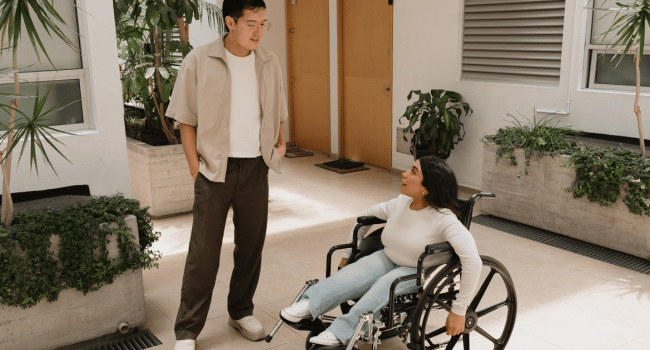Table of Contents
Living with a disability from birth shapes a person’s life in unique ways, affecting not only their physical capabilities but also their emotional, educational, and social experiences. While every individual’s journey is different, there is one universal truth: people born with disabilities deserve the same opportunities, respect, and access as anyone else. Society’s role is not to “fix” these individuals, but to ensure the world is built with inclusivity at its core.
From early childhood, many people with disabilities face challenges that extend far beyond the medical aspects of their condition. Accessibility in education, opportunities in employment, transportation, and community participation all play critical roles in fostering independence and confidence. These elements are not simply about convenience; they are fundamental human rights.
Early Intervention and Lifelong Support
For individuals born with disabilities, early intervention can be transformative. Programs that focus on motor skills, communication, and cognitive development from a young age provide a foundation for greater autonomy later in life. These services do not just address immediate needs; they equip individuals and their families with strategies to navigate the future.
As people grow, ongoing support becomes equally important. This includes access to adaptive technologies, social integration programs, and vocational training. In the United States, OPWDD Services (Office for People With Developmental Disabilities) provide a vital framework for delivering individualized assistance. These services can range from residential programs and community integration activities to employment support, ensuring that individuals can live as independently and meaningfully as possible. They also connect families to resources, help navigate funding options, and offer training for caregivers, creating a strong support system for long-term success.
Shifting the Narrative
Historically, people with disabilities, especially those born with them, have been viewed through a lens of limitation. Modern advocacy seeks to change that narrative, celebrating ability over disability and recognizing the incredible diversity within this community. Representation in media, workplace inclusion policies, and accessible public spaces all contribute to shifting societal perceptions toward empowerment and equality.
Creating truly inclusive environments requires listening to the voices of those directly affected. Policy decisions, urban planning, and even product design should actively involve people with disabilities, ensuring their lived experiences guide the process. This collaboration can lead to more effective solutions and a stronger sense of community belonging.
Building a Future of Equal Access
Technology and innovation are paving the way for unprecedented accessibility. From smart home systems that assist with daily living to advanced mobility aids and communication tools, the possibilities are expanding rapidly. Education is also playing a significant role, as schools adopt inclusive teaching methods and provide individualized learning plans to meet diverse needs.
Yet, technology alone cannot create equality. It must be paired with inclusive policies, funding for support services, and a societal commitment to dismantling prejudice. Employers, educators, and community leaders all have a role to play in creating an environment where everyone can participate fully.
Conclusion
A truly inclusive society is one where people with disabilities are not just accommodated but fully embraced. Through early intervention, ongoing support systems like OPWDD Services, and a cultural shift toward valuing diversity, we can ensure that everyone, regardless of ability, has the chance to thrive. Inclusion is not just possible; it is essential for a fair and compassionate future.
